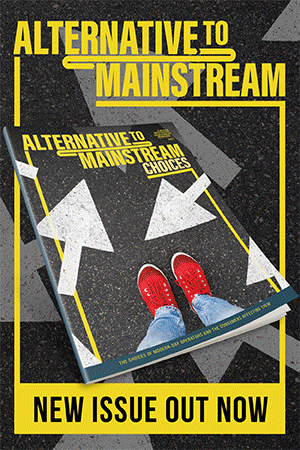LIDL RENAME SOURDOUGH BLOOMER
www.realbreadcampaign.org

Real Bread Campaign complaint leads to supermarket renaming the mainly wheat, sourfaux product.
As the result of a complaint by the Real Bread Campaign, on 1 December 2023 a trading standards officer advised: ‘Lidl have taken the comments on board and are changing the name of their “Sourdough crusty rye bloomer” to “Crusty Wheat & Rye Bloomer”.’
Real Bread Campaign coordinator Chris Young said: ‘We’re thankful that Lidl has come up with a more appropriate name for the product but we shouldn’t have to be spending our time on individual cases like this. Whichever party forms the next government, we urge them to introduce our proposed Honest Crust Act of improved composition, labelling and marketing standards.’
He added: ‘In the meantime, we urge all bakeries and retailers to adopt the measures voluntarily, including displaying full ingredients lists of unwrapped products at point of sale, so shoppers can make better-informed buying choices.’
Case history
The Campaign’s complaint was prompted by a Lidl customer, who had obtained the confession that a product the company marketed as ‘sourdough rye’ was in fact made mainly from wheat flour (56%), with baker’s yeast added to speed the rising process. Nowhere in store or on the company’s did Lidl declare these important facts to shoppers.
Lidl rejected the customer’s complaint so, on 31 May 2023, the Real Bread Campaign took action. The company rejected this second complaint and, after further correspondence broke down, on 20 September the Campaign complained to the trading standards department of London Borough of Bexley, which has a Primary Authority relationship with Lidl.
(LB Bexley then advised that they would not accept the complaint direct from the Campaign, but that we would have to raise it with our own local authority to refer back to Bexley, which we did.)
LB Bexley rejected the Campaign’s complaint about Lidl’s ‘baked for you throughout the day’ and related claims on the grounds that ‘the bread is clearly baked in store.’ This is despite the fact that Lidl makes nothing in store: all items in the unwrapped baked products section are made elsewhere and (in the case of loaves) merely re-baked in store.
Governmental guidance from the Food Standards Agency states: ‘Terms such as “freshly baked”, “baked in store” and “oven fresh” may mislead consumers into believing that they are being offered products that have been freshly produced on site from basic raw materials. Some stores sell bread made from part-baked products that have been packed in an inert atmosphere or frozen off-site then “baked off” at in-store bakeries. Use of terms like “freshly baked”, “baked in store” and “oven fresh” on these products could potentially infringe the general legal provisions [ on food law, labelling and consumer protection.]
Meanwhile…
Having been snubbed by Lidl, the customer wrote to the Advertising Standards Authority, which also rejected the complaint. In response to the customer challenging the decision, on 27 November 2023 the ASA operations manager for complaints wrote:
‘I have considered the details thoroughly but agree with the decision made by [my colleague] that there was no breach of our rules for the reasons he explained.
In particular, [my colleague] pointed out that there was a previous ASA ruling for another company’s ad which identified that there was no fixed legal definition of sourdough bread in the UK and that because the bread contained a sufficient amount of sourdough to distinguish it from non-sourdough products, the reference to sourdough was acceptable. The ASA Council had also noted that although the bread may contain a small amount of commercial yeast, that was not uncommon in commercially produced sourdough bread, and would not affect the average consumer’s perception of the bread as sourdough. In addition, you refer to wheat flour being contained within Lidl’s bread, but for the reasons above, and because sourdough breads may consist of different flours alongside the sourdough starter, there is no breach. I also agree with Adam’s decision on the “in store bakery” claim.
I appreciate the ingredients of the product did not align with your expectations for a sourdough product, but given we have already investigated and ruled on the matter, we will not be taking any further action.’
Chris Young said: ‘The fact that the ASA’s decision was different to the outcome of our trading standards complaint once again underlines the need for the Honest Crust Act we’ve been calling for since 2009. Too much still relies on opinion and interpretation, with cases like this taking weeks, months and even more than a year to resolve. Clear-cut definitions and regulation would make things some much simpler for shoppers, business owners and consumer protection bodies.’
The Campaign has now written to the ASA and trading standards to challenge elements of their respective decisions.





